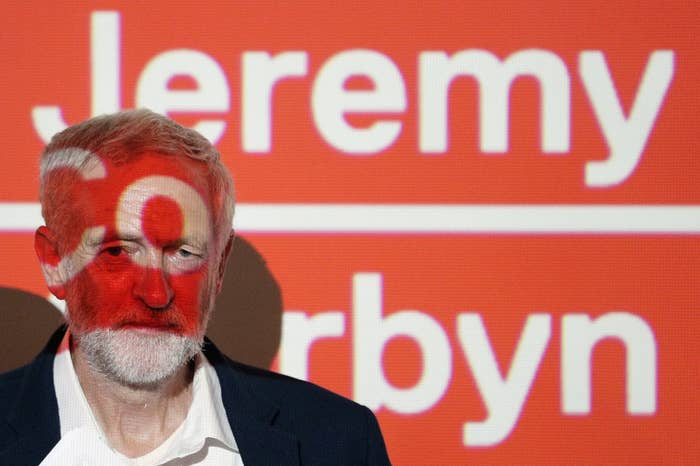
Speaking at Newspeak House in Shoreditch on Tuesday morning, Labour leader Jeremy Corbyn launched a digital manifesto pledging to protect British citizens from "unwarranted snooping on their online activities by the security services" as part of a "people's charter of digital liberties".
The move, said Corbyn – who is campaigning to retain his leadership against rival Owen Smith – was necessary to "protect our individual and collective freedoms" in the digital era, and formed a key part of the leadership favourite's digital policy.
However, in response to queries from BuzzFeed News, Corbyn's campaign appeared to confirm he supports the government controversial investigatory powers bill – a flagship policy introduced by Theresa May in March this year, when she was home secretary, and which is fiercely opposed as a "snoopers' charter" by free speech and digital rights campaigners.
The legislation is said by May and its supporters to be a vital tool in the UK's efforts against terrorism, strengthening a number of police and intelligence agencies' surveillance powers, while adding a degree of judicial oversight to some of them.
However, civil liberties groups have described the law, which codifies and extends many of the spying capabilities revealed by NSA whistleblower Edward Snowden, as "the most draconian piece of surveillance legislation seen in any Western democracy".
The bill will allow police and intelligence agencies – as well as some other bodies – to access the metadata of UK citizens without a warrant; require internet service providers to retain browsing history for all their customers for one year; allow mass hacking operations by police and spy agencies; and allow police and spy agencies to continue bulk data collection (including buying up data).
Labour, which was led by Jeremy Corbyn when the legislation was introduced, initially welcomed the proposals, then abstained during the bill's second reading in the Commons after raising concerns, before supporting the bill in its third and final Commons reading.
Corbyn was absent for the Commons votes on the bill.
Prior to becoming Labour leader, he spoke out in support of Edward Snowden – who has publicly condemned the UK's new surveillance law – and against mass surveillance.
Asked by BuzzFeed News whether Corbyn was still now supporting the surveillance legislation given his stated commitment to online privacy and protection from "unwarranted" surveillance, a campaign spokeswoman said Labour had secured important protections on the new law.
"Labour won major concessions from the government in the passage of the Investigatory Powers Bill, which protect the right to privacy of individuals and ensure there is a proper judicial oversight of electronic surveillance, whilst recognising legitimate security needs," she said.
"Today's manifesto is underlining a set of principals going forward that would underpin policy development, and represents the aspiration he has for an online space where individual rights and freedoms are protected."
Jim Killock, the director of the Open Rights Group, which fights for online freedoms, said Labour had failed to get to grips with the investigatory powers bill, and said Corbyn must use his mandate to oppose it.
"Its welcome that Jeremy Corbyn has put digital rights at the heart of his agenda. But Labour has not got its teeth into Theresa May's investigatory powers bill," he told BuzzFeed News.
"This bill is the most draconian piece of surveillance legislation seen in any Western democracy. Jeremy has spoken out and voted against mass surveillance but not enough has been done to amend this legislation.
"If re-elected, Jeremy Corbyn should use his mandate to stand up to the Tories and stop them giving the police and intelligence agencies the ability to log every website we visit and spy on our most personal communications."
The Liberal Democrats also accused Labour of "hypocrisy" over digital rights, given their support for the bill.
“I am glad to see that Jeremy Corbyn has caught up with the Liberal Democrats and is finally backing our proposal for a digital bill of rights," said MP Alistair Carmichael.
"However, actions speak far louder than words and when it actually came down to standing up for people’s privacy online by voting against the investigatory powers bill Labour swung behind the Tories supporting an expansion of the state’s surveillance powers. Corbyn himself didn’t even bother to vote.
"Corbyn might profess to want to stop the ‘unwarranted snooping’ on people’s online activities but apparently his party are fine with the Government retaining all of our web histories for 12 months. It doesn’t add up."
